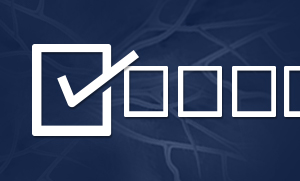Stress Tests

A stress test records electrical events of the heart during supervised exercise or simulated exercise.
Exercise Stress Test
How the Test Is Performed
This test is done at a medical center or healthcare provider’s office.
The technician will place 10 flat, sticky electrodes (conductive patches) on your chest. These are attached to an electrocardiogram (ECG) monitor that follows the electrical activity of your heart during the test.
You will walk on a treadmill or pedal on an exercise bicycle. Slowly (usually every three minutes), you will be asked to walk (or pedal) faster and on an incline. It is like walking fast or jogging up a hill.
While you exercise, the activity of your heart is measured with an ECG, and your blood pressure readings are taken.
The test continues until:
- You reach a target heart rate.
- You develop chest pain or a change in your blood pressure that is concerning.
- ECG changes show that your heart muscle is not getting enough oxygen.
- You are too tired or have other symptoms, such as leg pain, that keep you from continuing.
You will be monitored for 10-15 minutes after exercising or until your heart rate returns to baseline. The total time of the test is around 60 minutes.
How to Prepare for the Test
- You must not eat, smoke, or drink beverages containing caffeine or alcohol for three hours (or more) before the test.
- Wear comfortable shoes and loose clothing to allow you to exercise.
- Ask your healthcare provider if you should take any of your regular medicines on the day of the test. Some medicines may interfere with test results. Never stop taking any medicine without first talking to your doctor.
- Tell your doctor if you are taking sildenafil citrate (Viagra), tadalafil (Cialis), or vardenafil (Levitra) and have taken a dose within the past 24 to 48 hours.
You will usually be asked to avoid caffeine for 24 hours before the test. This includes: tea and coffee, all sodas (even ones that are labeled caffeine-free), chocolates, and certain pain relievers that contain caffeine.
How the Test Will Feel
Electrodes will be placed on your chest to record the heart’s activity. The preparation of the electrode sites on your chest may produce a mild burning or stinging sensation.
The blood pressure cuff on your arm will be inflated every few minutes, producing a squeezing sensation that may feel tight. Baseline measurements of heart rate and blood pressure will be taken before exercise starts.
You will start walking on a treadmill or pedaling a stationary bicycle. The pace and incline of the treadmill (or the pedaling resistance) will slowly be increased.
Sometimes, people experience some of the following during the test:
- Chest discomfort
- Dizziness
- Palpitations
- Shortness of breath
Why the Test Is Performed
There are a number of reasons why an exercise stress test may be performed.
- You are having chest pain (to check for coronary artery disease—narrowing of the arteries that feed the heart muscle).
- Your angina is becoming more severe or is happening more often.
- You have had a heart attack.
- You have had angioplasty or heart bypass surgery.
- You are going to start an exercise program and you have heart disease or certain risk factors, such as diabetes.
- Your physician wants to identify heart rhythm changes that may occur during exercise.
- Your physician wants to further test for a heart valve problem (such as aortic valve or mitral valve stenosis).
There may be other reasons why your healthcare provider asks for this test.
Normal Results
The meaning of your test results depends on the reason for the test, your age, and your history of heart and other medical problems.
It may be hard to interpret the results of an exercise-only stress test in some patients.
What Abnormal Results Mean
Abnormal results may be due to:
- Abnormal heart rhythms during exercise.
- Changes in your ECG that may mean there is a blockage in the arteries that supply your heart (coronary artery disease).
When you have an abnormal exercise stress test, you may have other tests performed on your heart:
- Coronary angiography
- Nuclear stress test
- Stress echocardiography
Risks
Stress tests are generally safe. Some patients may have chest pain or may faint or collapse. A heart attack or dangerous irregular rhythm is rare.
Persons who are likely to have such complications are usually already known to have a weak heart, so they are not given this test.
Other Stress Tests
- Stress echocardiogram—Stress testing performed in conjunction with echocardiography to obtain information about heart function under stress.
- Adenosine stress—Patients who are not able to physically exercise have heart rates artificially increased to simulate exercise; this is performed in conjunction with Myoview nuclear scan.
- Dobutamine Myoview stress—Patients not able to physically exercise have their heart rate artificially increased to simulate exercise; this is done in conjunction with Myoview nuclear scan. These patients are not able to take the adenosine stress test due to caffeine intake or respiratory disease.
- Dobutamine stress echo—Patients who are not able to physically exercise have their heart rates artificially increased to simulate exercise; this is done in conjunction with echocardiography.


